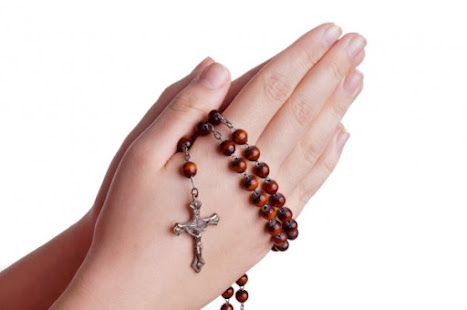Dear Friends,
What was the worst day of your life?
We might say: the day I lost my spouse, a parent, or child.
Some would say the day my marriage broke up or our child got into trouble or
turned away from us…the day I lost my job or found out I had a serious illness.
Some would say the day my faith in God disappeared or the day I experienced
emotional collapse.
Common in all these experiences is a sense of numbness or
emptiness. Nothing makes sense anymore. The world has become a hostile place.
God seems unreal and remote. Add in the breakdowns and violence in the physical
and political worlds and our helplessness is complete. Very few of us go
through life without times like this.
Today’s readings are about situations like ours, people like
us from another time and place who likewise have come to the end of their
resources. We can learn from them on how to face our own crises as individuals
and as a people.
The Book of Daniel was written several hundred years before
Christ, at a time when the Jewish people were fighting for their very survival.
The Gospel of Mark comes out of another time of crisis 30 years or so after
Christ’s resurrection. Jerusalem was then under foreign domination and the
familiar was being swept away.
Let’s look for the meaning beneath the imagery of the
calamitous times described in Daniel and Mark. Today, two thoughts gleaned from
Daniel and Mark are worthy of our attention.
First, In the throes of suffering, things are not as they
appear. We are not abandoned. God has not lost control. In fact, God goes
before us, surrounds us, awaits us, welcomes us, offers us the freedom to shape
life. It’s easy to recognize disaster. It’s more important to frame that
disaster in the hope that God offers us.
Secondly, it is only as a community that we come through
the disasters of life. Much as we would like to think of ourselves as
independent, self-sustaining and capable of working through the challenging
dimensions of life ourselves, we aren’t, and we can’t be. If you still think
so, name anything important in life that we have not received from someone
else. I do not exist without a we.
Individuals as well as groups fight the notion of being
saved together. Some of us would rather be lonely than bound to others. Some of
us fear being so lost in a community that our own personhood and efforts go
unnoticed and undervalued. Or we might fear that, in carrying others we might
get swept away ourselves.
Today’s readings tell us that only as interdependent people
will we be saved. God and we together can and will overcome the threatening
darkness.
The Letter to the Hebrews encourages us to hold fast to the
confession our hope inspires without wavering, for the one who has made us a
promise of life is faithful.
Whatever our difficulties, we have a God upon whom we can
depend.
~Sister Joan Sobala






